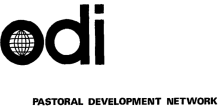Resource information
A useful debate is developing over carrying capacity and the degradation of communal rangelands in sub-Saharan Africa. With a few lonely exceptions, scientists and policy-makers have in the past claimed that degradation is universal and livestock productivity lowered because of overstocking on communal range. This position has been mainly dogmatic. More recent research has not supported dogmatists; hence the debate, which impinges on livestock development policy in Botswana.A new livestock development policy is being promoted by the Government of Botswana (Ministry of Agriculture 1991). This aims to privatise extensive areas of range, fence it and set stocking rate to `carrying capacity'. This policy would, if it meets its aims, affect livelihoods, nutrition and livestock exports as well as ecological systems. Unfortunately it is written in apparent ignorance of the debate, and rests on old dogma. White (1992) challenged the policy on its biological, ecological, social and economic assumptions and effects. de Queiroz while agreeing that the new policy would carry a high social cost, argued that White had ignored the reality of range degradation in Botswana. He also claimed that there was no basis for White's statement that de-stocking would decrease the productivity of rangeland. This interchange is a fruitful development of the debate. Confusion in the debate arises from the role of science in providing evidence and proof, conflicting theories of degradation, differences between definitions of degradation, assumptions about thresholds of degradation, and over the estimation of the impacts of stocking policy.



